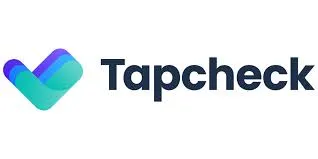Open-source collaboration is an integral part of software development, and it has brought about significant advancements in the industry. Developers can work together on projects, contribute to code, and create better software solutions. However, traditional open-source collaboration comes with its challenges, including centralization, lack of transparency, and ownership issues.
But there’s a new solution that is revolutionizing the open-source collaboration space – Radicle. Radicle is an innovative platform that provides a decentralized solution for open-source collaboration, allowing developers to work together in a transparent, secure, and trustless environment. In this article, we’ll take a closer look at Radicle (RAD), how it works, and its potential to revolutionize open-source collaboration. Want to learn more about Immediate Fortune and investments? Join https://immediate-fortune.com/ and get a whole new experience. Start your investment journey today!
What is Radicle (RAD)?
Radicle (RAD) is a decentralized platform for open-source collaboration. It is built on blockchain technology and utilizes peer-to-peer (P2P) networking to create a trustless environment for developers to collaborate on open-source projects.
Radicle aims to solve some of the challenges facing traditional open-source collaboration, such as centralization, lack of transparency, and ownership issues. It provides a decentralized infrastructure that allows developers to collaborate on open-source projects without relying on intermediaries or centralized platforms.
How Radicle Works
Radicle utilizes a unique approach to open-source collaboration. It creates a decentralized network of nodes that host the code and metadata of the project. This network allows developers to share code and collaborate on projects without relying on centralized platforms.
The platform uses Git as its underlying technology, which allows developers to version control their code and track changes. Radicle also integrates with popular development tools such as Visual Studio Code and GitHub, making it easy for developers to adopt the platform.
Radicle’s decentralized infrastructure ensures that no one entity owns the project, and the code remains transparent and accessible to everyone. Developers can contribute to the project without having to go through intermediaries or centralized platforms, and they retain ownership of their contributions.
Benefits of Radicle for Open-Source Collaboration
Radicle offers several benefits for open-source collaboration, including:
Decentralization:
Radicle’s decentralized infrastructure ensures that no single entity owns the project, making it more transparent and accessible.
Trustless environment:
Radicle’s P2P networking creates a trustless environment where developers can collaborate on projects without relying on intermediaries or centralized platforms.
Ownership:
Developers retain ownership of their contributions to the project, ensuring that their contributions are recognized and rewarded.
Transparency:
Radicle’s decentralized infrastructure ensures that the code remains transparent and accessible to everyone, creating a more collaborative environment.
Potential of Radicle in Open-Source Collaboration
Radicle has the potential to revolutionize open-source collaboration. Its decentralized infrastructure provides a more transparent and accessible environment for developers to collaborate on projects, and it eliminates some of the challenges facing traditional open-source collaboration, such as centralization, lack of transparency, and ownership issues.
With Radicle, developers can work together on projects without relying on intermediaries or centralized platforms, creating a more trustless environment. This approach can lead to more innovation, better software solutions, and a more collaborative development process.
Conclusion
In conclusion, Radicle is a groundbreaking platform that has the potential to revolutionize the way open source collaboration is done. Its innovative approach to decentralized code collaboration is truly unique, offering users a high level of security, transparency, and flexibility. By leveraging the power of blockchain technology, Radicle is setting a new standard for open source collaboration and making it easier than ever for developers to work together on complex projects. As more and more developers adopt Radicle, we can expect to see even greater advancements in the world of open source software.




















